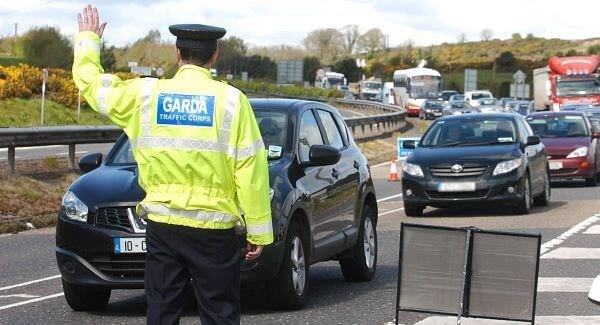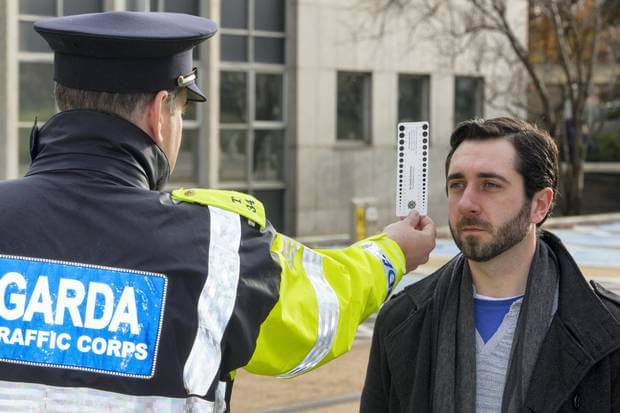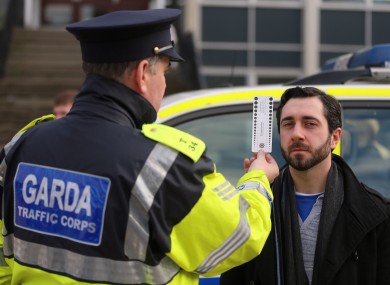Gardaí to test drivers for drugs at roadside

Garda roadside drugs test
AN GARDA SÍOCHÁNA has been given the go-ahead for new powers to test drivers for drugs on the roadside.
The measures are part of the Road Traffic Bill 2016, which was passed by the Oireachtas, 21 December 2016
The bill legislates on drug driving; written-off vehicles; mutual recognition of driver disqualifications between Ireland and the UK; uninsured drivers; and a new optional 20km/h speed limit in built-up areas, amongst other measures being introduced.
Mandatory Alcohol Testing (MAT) and Mandatory Intoxication Testing (MIT) checkpoints will be extended by the Gardaí to test drivers for both alcohol and drugs.
Under this new legislation, Gardaí can ask drivers to undergo a preliminary drug test for cannabis, cocaine, a range of opiates (including heroin and morphine) and a range of benzodiazepines (including diazepam and flurazepam).

Minister for Transport, Shane Ross said: “The new powers given to the gardaí to test for drugs at the roadside will allow them to test for a wide range of drugs which could not be previously tested for. These represent 95% of all drugs found by the Medical Bureau of Road Safety in samples sent to it for confirmatory testing in 2015."
“Drivers taking opiates and benzodiazepines prescribed by their doctors, [who are taking these prescribed drugs in accordance with their prescriptions, and are not impaired], have nothing to fear from the new measures.
“However, drivers abusing drugs such as cannabis, cocaine, benzodiazepines and opiate and driving while impaired will face a minimum disqualification of four years for their first offence and six years for their second and subsequent offence.”
These measures will bring with it a new offence, that of driving or being in charge of a mechanically propelled vehicle while under the influence and impairment of specific illicit drugs.

For the first time, drivers found to be above new legal thresholds for these drugs will be committing an offence without An Garda Síochána having to prove impairment, as is currently the case.
For those who are prescribed Sativex (which contains cannabis) for illnesses such as multiple sclerosis, will have a medical exemption certificate so that they do not fall under the new offence if they have this drug in their system or are carrying those drugs in their cars. He warned, however, that if such drivers are impaired, they will face the same sanctions as other drivers under existing drug driving legislation and can be prosecuted.
Author

Justin Kavanagh
Justin Kavanagh is a recognised leader
in automotive intelligence and vehicle
data supply to the entire motor industry.
He has almost 20 years experience in
building systems from the ground up.
As the Managing Director of Vehicle
Management System, he understands the
need and importance of trustworthy and
reliable vehicle history and advice to
both the trade and the public.
Follow me on LinkedIn